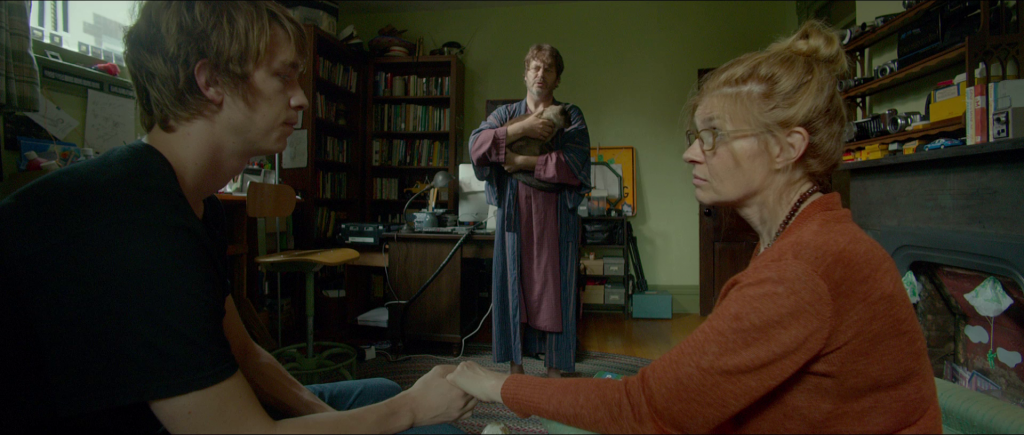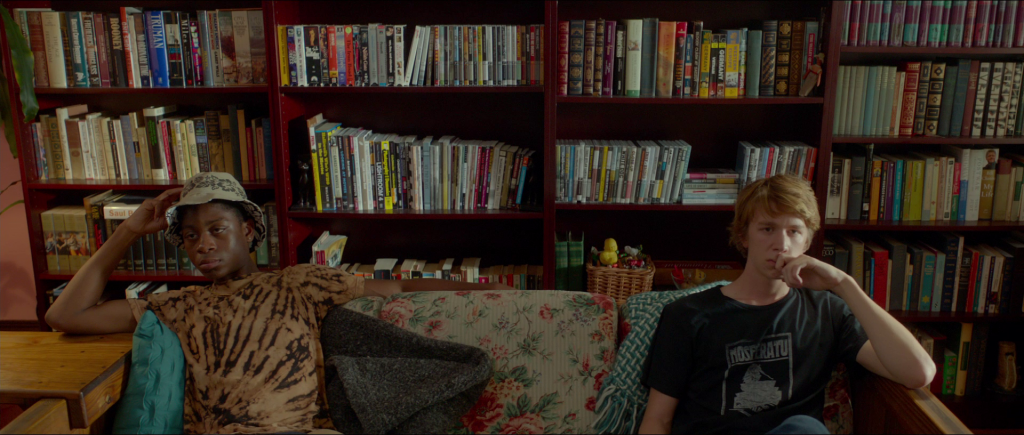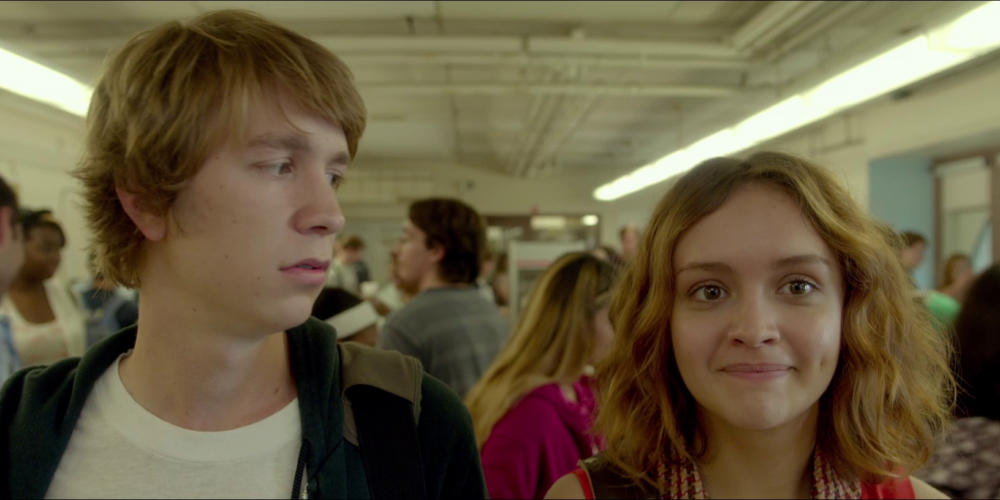Me and Earl and the Dying Girl is most easily described as The Fault in Our Stars with more cursing and less romance (in fact, no romance at all). But there are a lot more reasons why this is a wonderful book.
The novel written by Jesse Andrews is about 17-year-old Greg Gaines, who takes the art of being anti-social to a whole new level. He’s on friendly terms with everyone at school, but he remains inconspicuous enough to not belong to any clique. In fact, the closest thing he has to a friend is Earl, a “co-worker” whom together make short films. Bad short films. Like the kinds of videos on YouTube circa 2006.
But the status quo for Greg gets shaken up when he finds out Rachel—a classmate and brief girlfriend from middle school—is diagnosed with leukemia. That’s all the knowledge you need to know in this synopsis; the rest is worth finding out by reading the book.
There were two surprising things about Me and Earl. One is how funny the story is. As a high school teenager, Greg has a cynical perspective of the world and a snarky comment on everything. He deconstructs typical writing cliches, poking fun at cheesy romantic make-out scenes and noting that “It was the best of times, it was the worst of times” is an awful thing to put in a book.
Surrounding his life are a quirky group of adults, including Greg’s father who spends most of the day talking to the family cat, Rachel’s mother who laughs at every joke, and teacher Mr. McCarthy who eats pho and and loves well-researched facts. And every conservation between innocuous Greg and foul-mouthed Earl is simply hilarious. The story’s humor makes it a quick, fun read you don’t want to put down.

The other surprising thing is how Jewish the story is. At first, nothing reveals that it is in fact a Jewish story. Greg doesn’t go to temple or keep kosher. His name certainly doesn’t sound Jewish (apparently his mother decided she wanted kids with “sneaky Anglo-Saxon names” and thus named her kids Greg, Gretchen, and Grace). Even his viewpoint on Israel is a bit misguided:
I’m just saying, you do not leave Israel without getting laid. You could have an eight-inch-thick titanium diaper bolted to your pelvis, and you would still somehow get laid. It should be their official tourism slogan: Israel. Where Virginity Goes to Die.™
Nothing about “homeland” or “Zionism” or “good shawarma.” No, Israel to Greg is about getting laid. It is only when he mentions that he met Rachel at Hebrew school that we realize two-thirds of the title characters are members of the tribe.
Yet Greg still has the personality of a Jewish character, and it comes in the form of Jewish guilt.
The idea of Jewish guilt is a fairly recent one, popularized by the plethora of Woody Allen movies in the mid-20th century. Usually it stems from the character of the Jewish mother, whose defining trait is to create guilt in her children. It may also be connected to teshuvah, or the Jewish form of repentance. Some argue that that there is no such thing as Jewish guilt. But the myth creates the stereotype of the guilty Jew—neurotic, indulgent, and self-loathing.
Greg definitely does not emulate the personality of Woody Allen, but his Jewish guilt does drive the conflict inside Me and Earl. His mother guilts hims into visiting Rachel after she is diagnosed with leukemia. He continues to spend time with her, especially as she grows weaker, because he feels obligated to. It is clear that he does not harbor any romantic feelings for Rachel, or even consider her a close friend (remember, this is the guy who goes out of the way to avoid making friends). He simply does everything because he would feel guilty not to.
Without spoiling anything, eventually all the guilt piles on for the worse, affecting his relationship with Rachel, with Earl, with classmates, with teachers, and with family.

Rabbi Dovid Hochberg argues that not all guilt is bad. Negative, unhealthy guilt can lead to depression and self-loathing. But positive, healthy guilt can motivate change. This begs the question: is Greg’s guilt negative or positive? It’s a little of both. Though the guilt leads to unfortunate drama, in the end, Greg learns from his mistakes and really takes a leap of maturity.
So while Greg suffers from Jewish guilt, he is not a guilty Jew. He certainly acts selfish and despises every action he takes, but his self-awareness helps him to grow as a person. His guilt does not reenforce a bad Jewish stereotype but rather its adds some humor to the struggled life of a teenager.
Me and Earl and the Dying Girl by Jesse Andrews is an excellent book. The film adaptation directed by Alfonso Gomez-Rejon has its wide release in theaters today. Please read or watch it, but don’t let me guilt you into doing so!


This Post Has 2 Comments
Actors of fully Jewish background: Logan Lerman, Natalie Portman, Joseph Gordon-Levitt, Mila Kunis, Bar Refaeli, James Wolk, Jennifer Jason Leigh, Julian Morris, Adam Brody, Esti Ginzburg, Kat Dennings, Gabriel Macht, Erin Heatherton, Odeya Rush, Anton Yelchin, Paul Rudd, Scott Mechlowicz, Lisa Kudrow, Lizzy Caplan, Emmanuelle Chriqui, Gal Gadot, Debra Messing, Robert Kazinsky, Melanie Laurent, Shiri Appleby, Justin Bartha, Sarah Michelle Gellar, Margarita Levieva, Elizabeth Berkley, Halston Sage, Seth Gabel, Corey Stoll, Mia Kirshner, Alden Ehrenreich, Debra Winger, Eric Balfour, Jason Isaacs, Jon Bernthal, William Shatner, Leonard Nimoy.
Andrew Garfield and Aaron Taylor-Johnson are Jewish, too (though I don’t know if both of their parents are).
Actors with Jewish mothers and non-Jewish fathers: Jake Gyllenhaal, Dave Franco, James Franco, Scarlett Johansson, Daniel Day-Lewis, Daniel Radcliffe, Alison Brie, Eva Green, Joaquin Phoenix, River Phoenix, Emmy Rossum, Rashida Jones, Jennifer Connelly, Sofia Black D’Elia, Nora Arnezeder, Goldie Hawn, Ginnifer Goodwin, Amanda Peet, Eric Dane, Jeremy Jordan, Joel Kinnaman, Ben Barnes, Patricia Arquette, Kyra Sedgwick, Dave Annable, Ryan Potter.
Actors with Jewish fathers and non-Jewish mothers, who themselves were either raised as Jews and/or identify as Jews: Ezra Miller, Gwyneth Paltrow, Alexa Davalos, Nat Wolff, Nicola Peltz, James Maslow, Josh Bowman, Winona Ryder, Michael Douglas, Ben Foster, Jamie Lee Curtis, Nikki Reed, Zac Efron, Jonathan Keltz, Paul Newman.
Oh, and Ansel Elgort’s father is Jewish, though I don’t know how Ansel was raised. Robert Downey, Jr. and Sean Penn were also born to Jewish fathers and non-Jewish mothers. Armie Hammer and Chris Pine are part Jewish.
Actors with one Jewish-born parent and one parent who converted to Judaism: Dianna Agron, Sara Paxton (whose father converted, not her mother), Alicia Silverstone, Jamie-Lynn Sigler.
50% of the 2% Isralei’s were on Esbein’sIsland~